1972: Rick Demont, USA
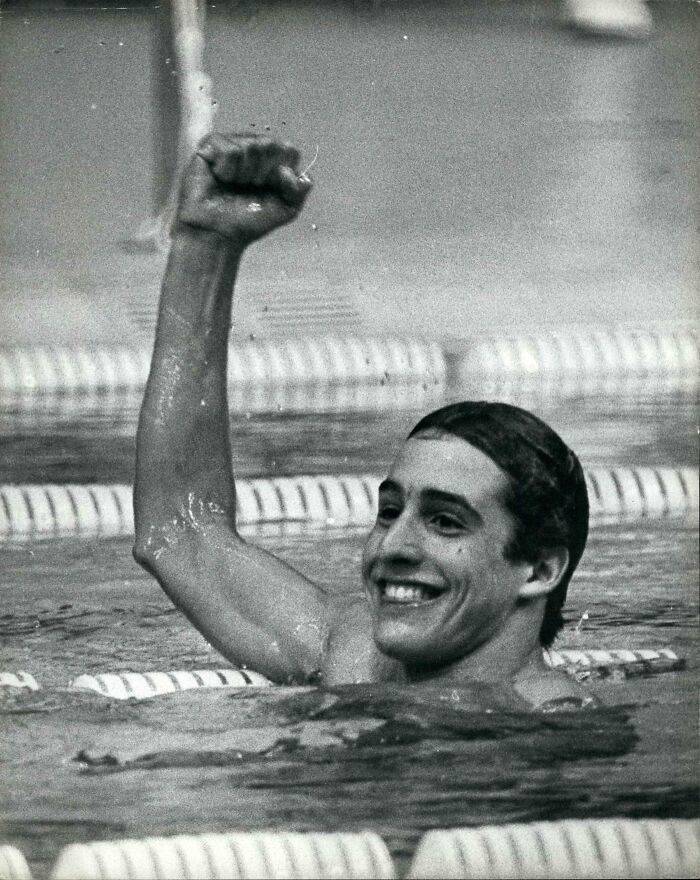
Rick DeMont is a former American swimmer who competed in the 1972 Munich Summer Olympics. At just 16 years old, he won the gold medal for the men’s 400-meter freestyle and qualified to represent the US. However, his asthma medication, Marax, had a prohibited substance in it. While the US Olympic Committee was aware of the medication, they never cleared it with the IOC, and he was later disqualified and banned from competing in any other events.
1964: Marika Kilius And Hans-Jürgen Bäumler, Germany

Kilius and Bäumler competed in the 1964 Austria Winter Olympics as pair skaters. They went on to win the silver medal in figure skating, but because of their professional participation in the show Holiday on Ice prior to the Games, they violated IOC’s amateurism rules. While they were stripped of their medals, they were later returned — but not until 1987.
2000: Andreea Răducan, Romania

Andreea Răducan is a former gymnast who represented Romania at the 2000 Summer Olympics at just 16 years old. While she won the gold medal for the women’s all-around competition, she tested positive for a banned substance that was found in cold medicine, which was given to her by the team’s physician. Even though she was later found not guilty of doping and the physician was banned from practicing in the 2004 and 2008 Games, her medal was not reinstated.
2000: Dong Fangxiao, China
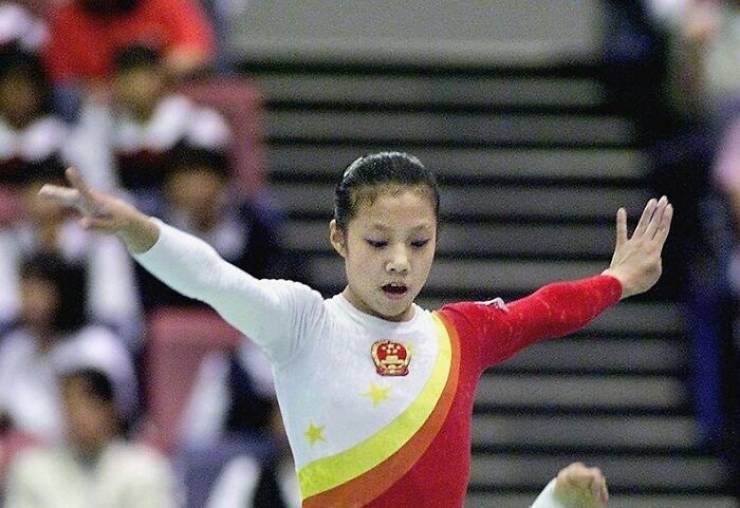
Dong Fangxiao competed in the 2000 Sydney Summer Olympics, where her gymnastics team won a bronze medal for China. However, it was later revealed that she was only 14 years old, which was considered underage to compete. Because of that, they were later disqualified from the games.
2000: 4×400 Meters Men’s Relay Us Team
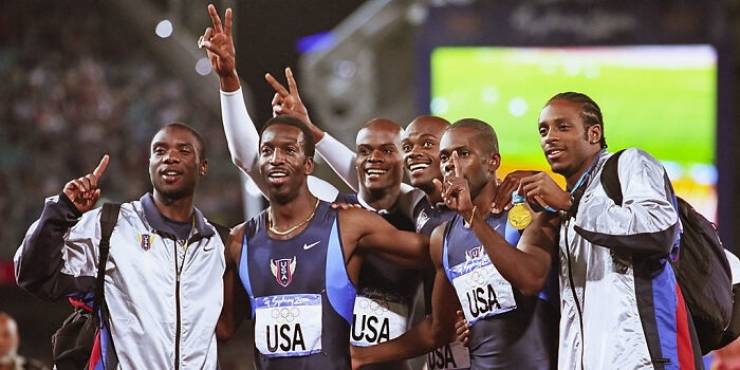
Jerome Young, Michael Johnson, Antonio Pettigrew, Angelo Taylor, Alvin Harrison, and Calvin Harrison competed in the 2000 Sydney Summer Olympics and had their gold medals stripped away, reinstated, and stripped away again. Jerome Young committed a doping offense, so the entire team had their medals taken, but since he didn’t run with the rest of the team in the finals, they got them back. But later in 2008, Antonio Pettigrew admitted to using performance-enhancers, so the entire team was disqualified…again.
1998: Ross Rebagliati, Canada
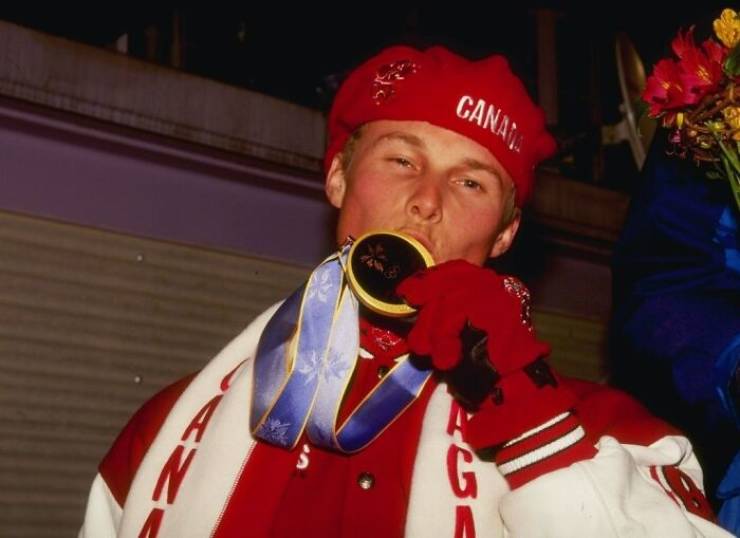
Ross Rebagliati competed in the 1998 Nagano Winter Olympics and won the gold medal for Canada in the men’s giant slalom event. However, he tested positive for THC so they disqualified him, despite THC not being a banned substance. Because of that, the Canadian Olympic Association ruled that the IOC had no authority to take the medal away for that reason, so they had to return the medal. But they added cannabis to the list of banned substances two months after the Games.
2008: Ara Abrahamian, Sweden
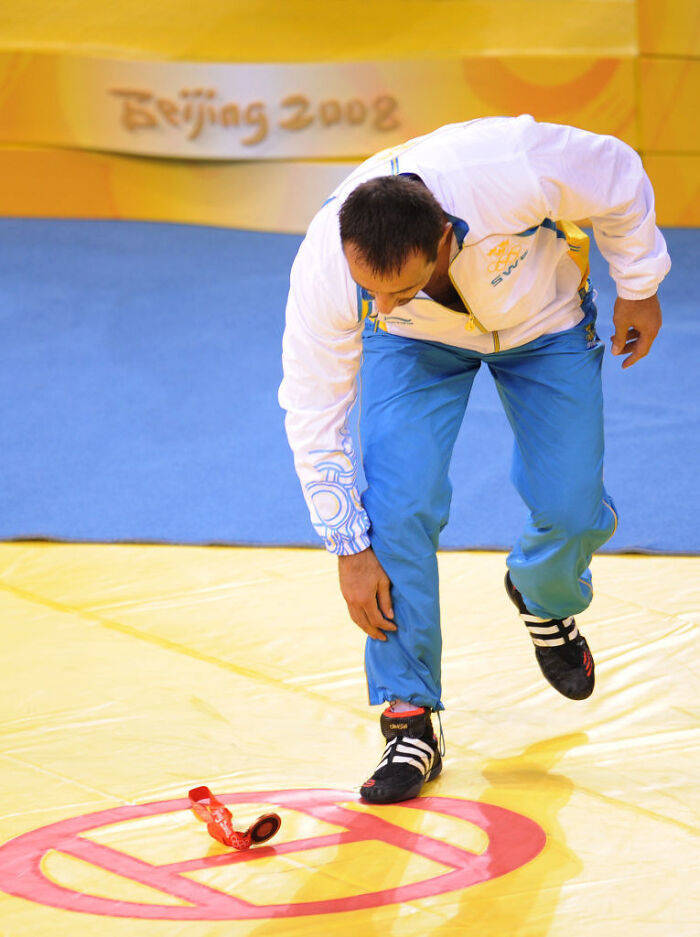
Ara Abrahamian is an Armenian Swedish wrestler who competed in the 2008 Beijing Summer Olympics. After disputing the judge’s ruling during a semi-final match, he won a bronze medal but took it off during the ceremony, placed it on the mat, and left. The International Olympic Committee (IOC) then stripped him of the medal and banned him for life.
1952: Ingemar Johansson, Sweden
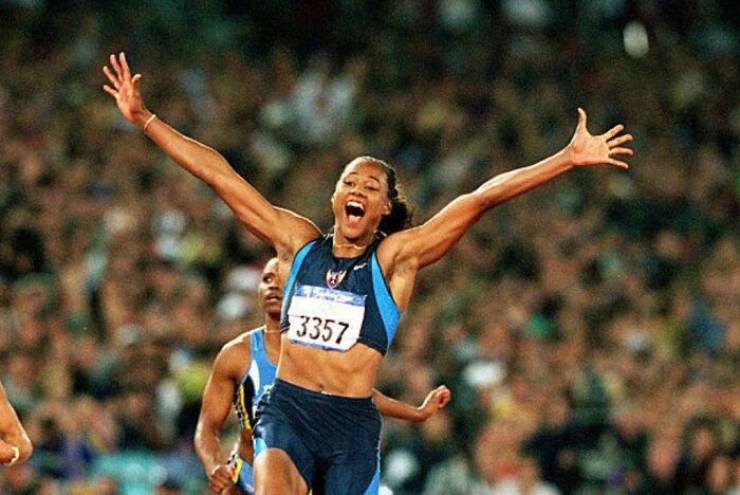
Ingemar Johansson was a Swedish boxer who competed in the 1952 Helsinki Summer Olympics. He competed in the Games at 19 years old and made it all the way to the gold medal match, but he was disqualified for passivity (basically he was blocking more than he was punching) to tire out his opponent. However, his silver medal ended up being reinstated in 1982.
2000: Marion Jones, USA
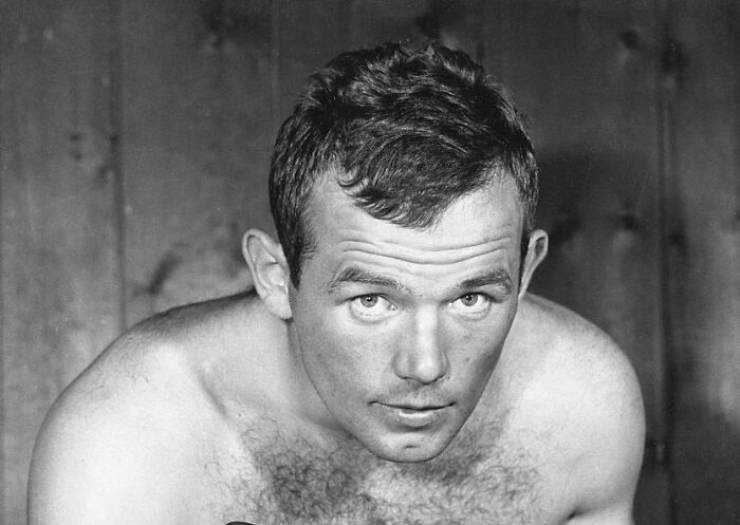
Every couple of Olympics, a track and field athlete completely dominates the rest of the field. That was American Marion Jones in 2000 as she laid waste to the world’s best athletes. She was the toast of the games and later played professional basketball.
In 2005 and 2006, though, the sprinter became caught up in the BALCO steroid scandal. In 2007, she admitted that she had been using steroids during the games and was stripped of her multiple 2000 games medals.
2008: Tony André Hansen, Norway
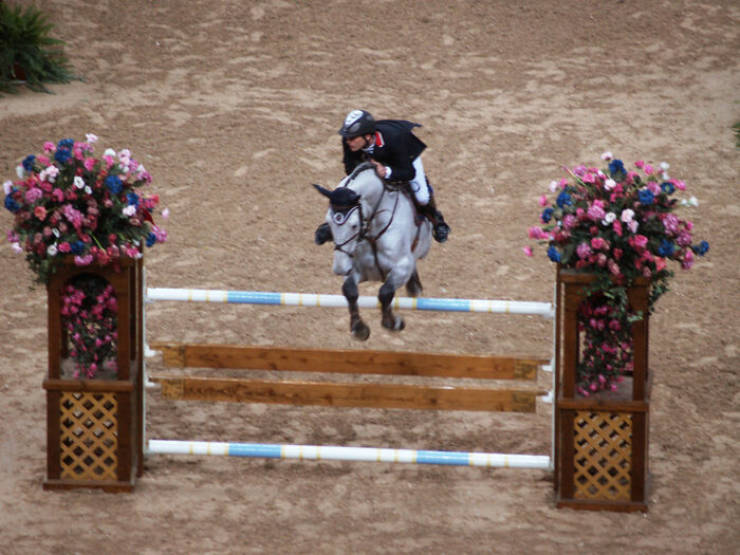
Humans aren’t the only ones tested for illegal drugs at the Olympics. Horses competing in the equestrian events are also scrutinized, and at the 2008 Olympic Games in Beijing the horse Camiro, ridden by Norwegian Tony André Hansen, tested positive for capsaicin. Although commonly used for minor injuries in a topical ointment made from chili peppers, capsaicin can be a stimulant and is thus on the list of substances banned by the Olympics. Hansen and Camiro had won bronze in a show-jumping event but were stripped of the medal.
2004: Tyler Hamilton, USA

Tyler Hamilton is a former American road bicycle racer who competed in the 2004 Athens Summer Olympics. He won a gold medal, but a drug test found someone else’s blood in his bloodstream, a form of blood doping. He later went on to confess to various forms of doping and included former teammate, Lance Armstrong, in his confession. In 2012, the IOC ordered for the medal to be returned.
2012: Nadezhda Ostapchuk, Belarus

Nadezhda Ostapchuk is a shotputter from Belarus who competed in the 2012 London Summer Olympics. Apparently, her coach admitted to spiking her food with a banned substance because he thought it wouldn’t be in her system by the time of her drug tests. She won a gold medal but failed her drug test, resulting in her being disqualified from the Games, receiving a one-year ban, and her medals being stripped from both the 2012 and 2008 Games.
1968: Hans-Gunnar Liljenwall, Sweden
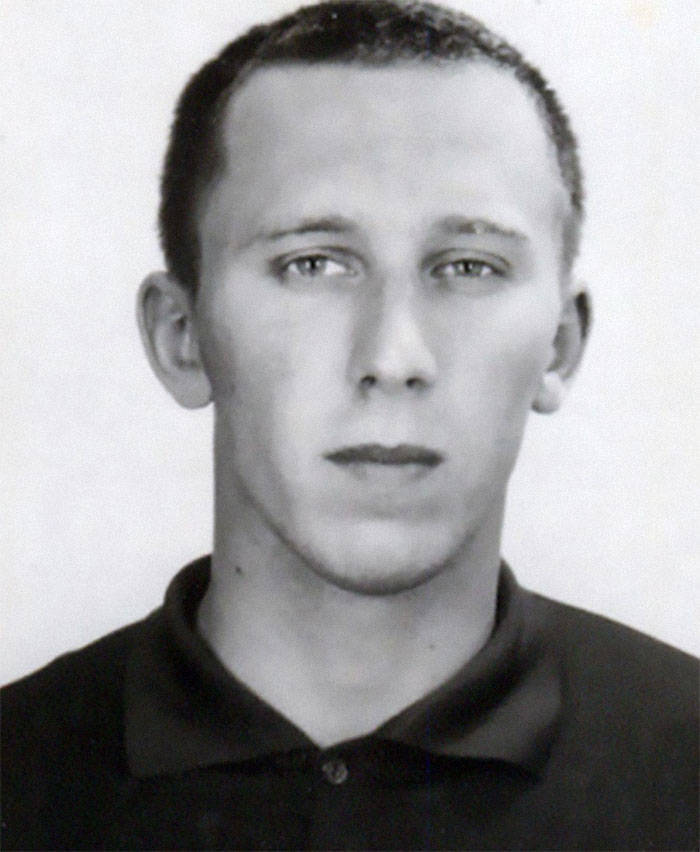
Hans-Gunnar Liljenwall competed in the shooting portion of the pentathlon at the 1968 Mexico Summer Olympics. Though his team won a bronze medal, he drank prior to competing, and the team was forced to give back their medals, despite alcohol not being a banned substance at the time. The 1968 Games were the first to introduce drug testing, and Liljenwall was the first to be disqualified for it.
2000: Izabela Dragneva, Bulgaria

Izabela Dragneva is a retired Bulgarian weightlifter who also competed in the 2000 Summer Olympics. She won the gold medal, making her the first woman in Olympic history to win a weightlifting competition. But after she and other members of the Bulgarian weightlifting team failed their drug tests, the entire team was disqualified and suspended from competing for a year.
2014: Russian Bobsled Teams

The 2014 Olympic games took place in Sochi, Russia. President Vladimir Putin took the games as an opportunity to show the strength of his athletes on the world stage. Some of those athletes aimed for a little more help in their events.
The Russian bobsled team dominated the events, winning both the two and four-man events. Both athletes in the two-man, Alexandr Zubkov and Alexey Voyevoda failed their tests. The two offenders were also on the four-man team.
2018: Russian Mixed Curling Team

Russia’s mixed curling team took home the bronze medal during the most recent Winter Olympics which took place in Pyeongchang, South Korea. The male member of the team, Alexander Krushelnitskiy tested positive for the drug meldonium. He was stripped of the medal in February of 2018.
1992: Ibragim Samadov, Ussr

Ibragim Samadov is a former Chechen weightlifter who represented the Soviet Union in the 1992 Barcelona Summer Olympics. The gold medal match was so close that they needed two tiebreakers, but both left Samadov in third place with a bronze. At the ceremony, he dropped the medal onto the podium and left, resulting in him being disqualified from competing and receiving lifetime bans from the Olympics and the International Weightlifting Federation.
2008: Cao Lei, China

Cao Lei is a 165-pound weight lifter who hails from China. She was a prominent competitor in the sport who took home the gold during the 2008 games in Beijing. After failing a drug test following the Olympics, though, she was stripped of the medal.
Lei wasn’t the only Chinese powerlifter to lose her honor. She was joined by fellow Chinese weight lifters Chen Xiexia and Liu Chunhong who also lost the golds they had won at their home country games.
2000: Alexander Leipold, Germany
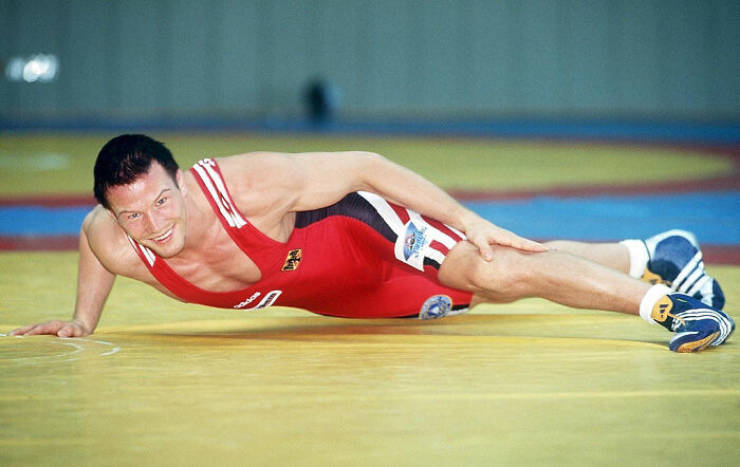
By the time German wrestler Alexander Leipold competed in the 2000 Olympics, he was an experienced veteran in the sport. The 2000 games were his 4th time competing and he had won the German championship 11 times.
Leipold had the tournament of his life in 2000 and swept his matches. Following his gold medal victory, though, the results of his drug test came back positive. Due to the mishandling of his urine sample, Leipold was only banned from international competition for one year.
 Barnorama All Fun In The Barn
Barnorama All Fun In The Barn